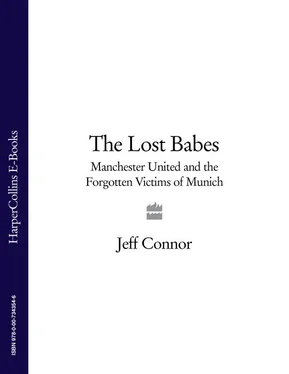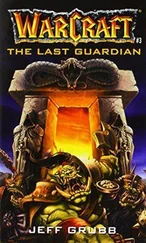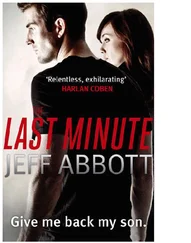Over a period of three years, this book caused much soul-searching about content and motivation. At one stage work on it was halted for over twelve months, mainly because I began to believe that some of the criticisms levelled in these pages—that a number of people had sought to profit from Munich—could justifiably be applied to me. In the end, I chose to agree with a member of one of the Munich families who told me: ‘This is a story that should be told.’
Jeff ConnorEdinburghFebruary 2006
1 THE FLOWERS OF MANCHESTER
First of all, a confession. In what amounts to a small lifetime since 19 February 1958, I have only been to one football match at Old Trafford. What is more, I haven’t lived in Manchester for almost four decades and in that period have been back to the city on maybe five occasions, and never for any length of time. In many red-tinted eyes this will immediately place me in the same dubious category as Zoe Ball, Eamonn Holmes, Angus Deayton, Simon Le Bon and the millions of other surrogate fans worldwide who have chosen to attach themselves to Manchester United, the ‘part-time supporters’ reviled in terrace song and on the multitude of websites devoted to the club.
But there’s worse: when I did return to Old Trafford as an employee’s guest, in October 2002, it was to join Roy Keane’s despised corporate spectator brigade in the club’s Platinum Lounge where we scoffed, not prawn sandwiches, but paupiette of plaice, stuffed with cockles, and washed down with a bottle of Château Guirauton 2000.
The sixty-or-so current and potential sponsors dining there that night included a smattering of semi-famouses headed by Angus ‘Statto’ Loughran and Derek ‘Deggsy’ Hatton and we had been met at the doorway by the Platinum Lounge’s extremely famous, and very canny, host (‘Don’t I know your face?’ asked Paddy Crerand of me). Over coffee, a liveried waiter took my order for ‘your halftime drink, sir’ before someone remembered there was a football match on that night and I retired, in the company of executives from Boots the Chemist, Fuji Films and Ladbrokes the Bookmakers, to my comfy, padded seat in the North Stand to watch Everton dispatched 3-0.
The atmosphere, even when United scored the three goals in quick succession to secure a late victory, was curiously antiseptic, particularly among the support around me. True, clenched fists were occasionally raised selfconsciously, but no one once left their seats, even for a goal. The representatives of Fuji Films seemed more concerned with the number of times play went close to their one million pounds a year revolving trackside advertising hoarding than the quality of the football, and the only evidence of real passion came from a large Liverpudlian accompanying Deggsy, whose language was what you would expect from a large Liverpudlian in the company of Deggsy.
The evening’s entertainment had cost me £5, the price of a ticket to park my car in a vast, fenced-off area of waste ground on John Gilbert Way close by the stadium, and in the rigidly defined terms of the terraces I plainly do not qualify as a ‘supporter’, although the current plc may be happy to learn that I have stayed in a nearby hotel partowned by Manchester United, spent money in the Old Trafford Megastore, eaten three meals in the Red Café and paid two visits, at £5.50 a time, to the club museum. It all depends how you define support.
Before the subscribers to Red Issue , Red News , Totally Red and Red-whatever-else start to compile the threatening letters, let me say that despite those forty years spent elsewhere, if people ask me where I am from I always give the answer ‘Manchester’. If pressed further I may add (and a northerner’s habit of revealing only one item of information at a time has never gone away): ‘North Manchester’ and, perhaps, ‘Harpurhey’. I may also, if I sense a football audience, reveal that Beech Mount nursing home was 100 yards from where Nobby Stiles’s father ran a funeral parlour and close by the birthplace of Brian Kidd. If anyone else (and this is always the next question) demands to know where my football allegiances lie I always insist ‘United’, and if the more erudite look at the evidence of late middle age—grey hair, nascent jowls and alarming waistline—and venture a little further to enquire if I saw the famous Busby Babes in action I can truthfully reply: ‘Yes, several times.’ They are the reason why the colour red and the place-name Munich represent only one thing to me; why I still feel unreasonably happy when Manchester United win and unreasonably churlish when they lose (even though I feel little or no affinity with the current crop of players, or their manager).
This lifelong and incurable affliction is why, much to the discomfiture and embarrassment of other customers, I wept into my Guinness in a Southampton public house when the man with the flop-over hair lifted that graceless silver trophy at Wembley on a sweaty May night in 1968. And why, as extra-time approached in Barcelona in the Champions’ League Final of 1999, I was crouched behind the settee in my Edinburgh flat, out of sight of a taunting television and with a finger in each ear. The Busby Babes are the reason my fealties would have remained unchanged had they won absolutely nothing for the last forty-five years…and why, in all that time, I have only once ventured inside Old Trafford for a football match.
On the night of the Everton game, I had foolishly gone along in the hope of catching sight of shades of long ago, imagining that if I half-closed my eyes I would see Duncan Edwards belligerently pushing out his chest and tucking his jersey into his shorts before the game, Roger Byrne imperiously patrolling the touchline, David Pegg tip-toeing down the wing and Tommy Taylor rising to head another goal. But nothing, save a lone banner high in what had once been the Stretford End which read: ‘Flowers of Manchester, 1958’. In forty-five years United and Old Trafford had moved on to something I could not recognize and my return ended in a confusion of disappointment, frustration, and something close to guilt.
I have been back for other reasons, most notably on 6 February 2003, when I joined around thirty others under the Munich memorial plaque, in the shadow of Old Trafford’s impressive glass façade, to remember the eight players and three officials from the club who had died in Germany at that time, and on that date, forty-five years previously. The plaque, embedded high in a brick wall, is cast in the shape of a football field and lists the lost players: Byrne, Geoff Bent, Eddie Colman, Edwards, Mark Jones, Pegg, Taylor and Liam Whelan, alongside the names of the then club secretary, Walter Crickmer, trainer Tom Curry and coach Bert Whalley, who also perished.
As with so many ceremonial occasions, it was an afternoon replete with symbolism. I had walked down Warwick Road from Old Trafford Metrolink station in the company of a young couple from Singapore, Edmund and Kareen Chan, who were trailing a large suitcase on wheels and had asked for directions to the ground. The Chans proudly informed me that their two five-year-old sons had been christened Ryan and Roy…but they, like so many other United supporters around the world, had studied their history books, knew the story of Munich and understood the justifications for my mission.
At the ground, we wandered around the Megastore, gamely resisting the determined attempts by a lady in a red suit to assign us an MUFC credit card, and then stood in the queue behind a large group of primary school children at a supermarket-style checkout manned by an unsmiling woman with the hard-faced grace of an Albanian customs official: ‘You’re two pence short,’ she snarled at a startled five-year-old girl bearing a tiny fistful of change. In the background, a large man in a shiny black suit, and with the shaven head, gimlet eyes, curly-wurly earpiece and neatly trimmed beard of a nightclub bouncer, kept a twitchy vigil.
Читать дальше












